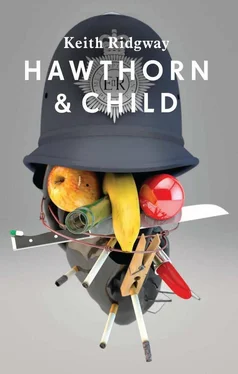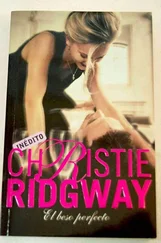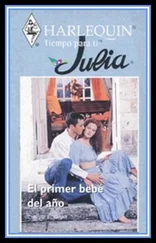She’d told her father that she couldn’t see him that day. That she was seeing Stuart.
They arrived at Waterloo and walked along the river, strolling, holding hands. He looked so good. Byron had said to her a few days before that Stuart was always good-looking, but now that he was going out with her he was beautiful. He’d said it really nicely, quietly, with a big smile. Then he’d made her promise not to tell Stuart he’d said it, or he’d kill her.
The Tate was quiet. There were still tourists and some big groups of kids, but it was nice, it was OK, it was easier to stand and look at things than it usually was. They went searching for the Rothko room. She had told Stuart about Rothko, a little. How he did not move her. And he had wanted to see. He said he knew a song about Rothko by an American singer that he liked. She rolled her eyes. The only things he knew about were things he’d heard in songs. He laughed at her.
They looked at the paintings. The room was almost empty. Large flat blocks of colour frayed at the edges, set against the dark. It was gloomy in there. Why was it so gloomy? It was cool, at least. Cath sat on a bench and tried again with Rothko. Stuart stood at first. Then he sat beside her for a while. They didn’t say anything. She wanted to let him decide for himself. He stood up again and walked around the room. Then he stopped in front of one of them and his head dropped on to his chest. Then she saw him wipe his eyes and look up again. She thought he was bored. He didn’t get it either. She stood and went to him and took his hand, meaning to lead him out of the room so they could look at some other stuff or get a coffee. He turned to her. He was crying. Not sobbing. But there were a couple of tears running down the side of his nose, and his eyes were red. She stared at him.
He wanted to stay in the room. He moved around. She watched him. He breathed deeply. He stood still. Really still. He sat on the seats a couple of times and just looked. She wondered if he was taking the piss. She went and sat beside him.
— What do you think?
— They’re beautiful. I don’t understand how they work. But they’re just beautiful.
He wanted to stay there for ages. He looked at the Rothkos, and she looked at him.
In the café afterwards she complained about her parents. She told him that there was something they weren’t telling her about this dead woman, Misha. She told him it wasn’t fair. That they just weren’t thinking about her. He nodded.
— Maybe they can’t, he said.
— They could try.
— Maybe you had to be there. Some things you can’t share, you know?
He got a second coffee. He wanted to talk about the Rothko room. He seemed a bit embarrassed now, that he’d been so moved by it. He smiled and shook his head.
— They’re so great though. I could look at those things all day.
She told him about her dad and the eggs.
— I made my dad scrambled eggs one morning yeah? When I was staying in his place for a weekend. He sleeps late you know. And I made him breakfast when he got up, you know — good little girl. And it was like, scrambled eggs on toast, and some bacon and a tomato. Stuff like that. And a pot of tea. Glass of orange juice. All posh. And he really liked it. And then he was trying to show off that he knew about art — he’s always doing this — and he splatters ketchup all over the scrambled eggs and he said, Rothko eggs . Pointing at the eggs yeah? Rothko eggs . I didn’t know what he was on about. They look like a Rothko painting, he said, all pleased with himself. And then I realized that he’d gotten Rothko mixed up with Pollock!
She laughed.
Stuart smiled.
— So now he still calls scrambled eggs Rothko eggs . I never corrected him. He hasn’t realized yet. So he’s always asking for Rothko eggs . I bet he does it at work and everything. Trying to show off how cultured he is. Down the police station, you know? Pretending he knows his art. Had some great Rothko eggs this morning. And no one has a clue what he’s on about. It’s so funny.
And she laughed, to show how funny it was.
Stuart smiled at her. He looked at her and smiled and said nothing, and he rubbed his eyes.
Later that day she asked him about the scar.
— What happened?
— What?
— There. How did you get it?
— Shark bite.
— Really though.
He said nothing for a minute. Then he lay on his back and looked at the ceiling.
— A few years ago. I was swimming in a river. Sort of a river thing, near where we were staying on holiday in France. Me and a friend went swimming. He was a local guy. And we got snagged on some stuff under the water. There was some old farm machinery or something dumped in there. And we were kind of diving down and exploring it. It wasn’t very deep but we were trying to … I don’t know … pretending it was a shipwreck or something. He pushed a bit of it I think. Or pulled it. Or maybe he didn’t. But it shifted. We got …
He stopped.
— What?
— Some part of it caught my leg when I was freeing myself. Some sharp edge. And cut it.
— Shit. Did it hurt?
— Yeah. Well. Yeah, after a bit. I didn’t notice at first.
– ’Cos you have arteries and stuff in there. You could bleed to death.
— Yeah.
He said nothing. She looked at him.
He was quiet. He had drifted off somewhere. She traced shapes and words and pictures on his chest with her fingers. The sun lit the curtains and the music made her drowsy. She was lulled by his heartbeat into feeling nothing more than a vague wonder that nothing in her life had really started yet.
She went home. She thought about their day. Something had gone wrong but she didn’t know what.
I am ill. I have been ill for some time. Years now. It has become years.
I believe, though I cannot prove, that my illness is due directly to the perverted Catholicism and megalomania of Mr Tony Blair, former Prime Minister, whom I met once, whose hand I physically shook (at which point he assaulted me), and who, if you should mention my name to him, will tell you that he met me, or that he did not meet me, or that he cannot recall. Because he has all the answers.
My illness is debilitating. It disbars me from work. It prevents any social interaction. It has been, my illness, both misrecognized and dismissed. Misdiagnosed. And dismissed. As malingering; as a problem of my own creation, of my own invention, as if it was my child or my garden or a song I was singing, or something I have idly, on a quiet afternoon say, made up, invented, as a story to tell mental health professionals because I have nothing better to do. It generates anger, pity, bloody-minded stinking compassion, notes between doctors, phone calls and files, avoidance, the disappearance of friends, and all that sort of Englishness. I sit in my chair.
Compassion is a weapon wielded against me. Amongst others.
I’m not blaming you, specifically. I don’t blame people, specifically.
However, Islington council, my landlords, my sister (against her entire knowledge), and the NHS are all trying to kill me. Trying to enable circumstances (to arise) in which my death becomes inevitable. They are involved in an unconscious, unarticulated conspiracy to kill me in other words. It’s not a plot. It’s nothing so straightforward as a plot. No one can be blamed in any individual way. It is an inevitable, bureaucratic conspiracy, so devolved and deniable as to be invisible; so peculiarly set out in rules and procedures and protocols and directives and guidelines as to allow plausible public denial of responsibility on the part of any of the participants at any stage of the process.
Читать дальше












